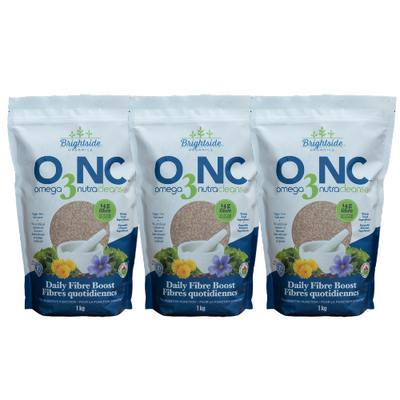Fighting Anxiety & Depression
When you think about managing anxiety and depression, you probably don’t jump to thinking about the role of Omega-3 fatty acids in your mental health and general mood. But as the rates of anxiety and depression rise within our population, and consequently, as the study of mental health grows more comprehensive, there’s compelling evidence to suggest that Omega-3s might be more important than you’d think.
Omega 3s are a family of essential fatty acids that are necessary for assisting the body’s critical functioning but cannot be produced within the body itself. Because the body can’t make Omega 3s on its own, it must be consumed through diet.
Comprised mostly of alpha-linolenic acid (ALA), docosahexaenoic acid (DHA), and eicosapentaenoic acid (EPA), these Omega 3s are found in plants, animals, and algae. In the body, they’re used for energy, and as structural elements for the brain, the retinas, and other body parts.
But what does all this have to do with your mental health?
Well, of the many functions of Omega 3s, reducing inflammation is thought to be one of the most prevalent ways it can assist with depression and other mood disorders.
Inflammation occurs when the body is trying to target a specific region for healing, with the immune system calling on cells, proteins, and tissues to flood the area and address the breach in health.
Happening in tandem with inflammation is the onset of “sick behaviours” that signal the body to rest and isolate, leading to symptoms like fatigue, slowed cognition, and loss of appetite (sound familiar?). These sick behaviours are used to encourage your body to heal more effectively, preventing you from exerting yourself or wasting unnecessary energy on things other than getting better.
The trouble is, that sometimes the body can have a prolonged inflammatory response, with the body signaling these sick behaviours for extended periods of time—causing the symptoms associated with depression, like fatigue, slowed cognition, and loss of appetite, to be ever-present.
When this is the case, Omega 3s, incorporated in our O3NC formula, help reduce the inflammatory response of the body, permeating the blood-brain barrier that other anti-inflammatories like aspirin can’t reach. By reducing the body’s prolonged or negative inflammatory response, Omega 3s can also help reduce the symptoms commonly associated with depression.
In addition to being linked with improving and preventing some facets of depression, Omega 3s have been associated with mitigating anxiety as well. Just as the symptoms of depression are linked to the body’s inflammatory response, so too are the symptoms of anxiety.
When incorporated into your regular routine, along with diet, exercise, and professional help, the Omega 3s found in O3NC can help keep your brain regulated, and keep you feeling your best.


